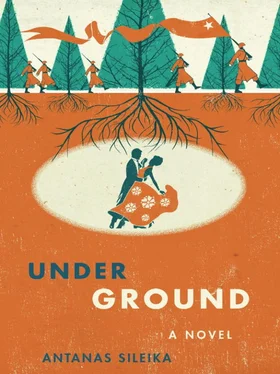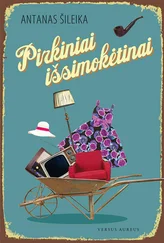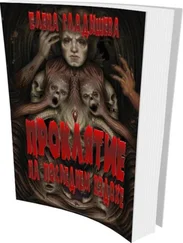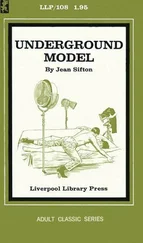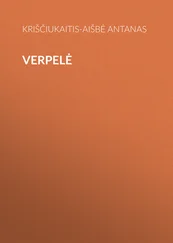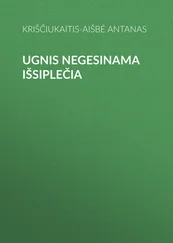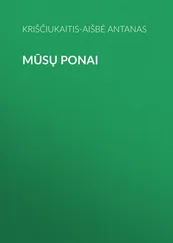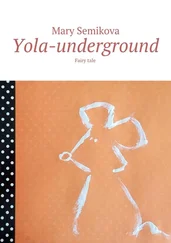The winter rain continued without end, working to wear him down with its drip, drip, drip through the ceiling of the leaky bunker. The hideaway had been built in an old gravel pit and not much earth was layered over the ceiling. The upper bunk was covered with bowls to catch the drips, but the place was still damp and stank of mildew.
After slinking across the country for weeks, it was hard for Lukas to be still like this, awaiting news from Lakstingala. It was impossible to become used to life in a wet hole. Lukas read a German novel about a couple of artists who forswore their bohemian ways in order to find happiness in working the land and raising a family. The novel helped to pass the time, but when he was finished he realized it had nothing to do with him. It might as well have been science fiction.
He opened up the hatch to the outside and listened to the wind rattling the leafless branches.
Every few days, or sometimes at longer intervals, Lakstingala would return, but he rarely brought any uplifting news, just fragments of stories, scenes disconnected from some bigger narrative. He had seen two young women escaping from the Cheka, running barefoot across frozen fields, their feet bleeding, being pursued by soldiers who fired wildly at them from a distance. No one knew where the women came from or how the story ended. With his own eyes Lakstingala had seen a boy of around seven or eight sitting on a huge sack at the roadside and crying. The child was incapable of speaking through his tears, and Lakstingala could not help him in any way, although he was probably an orphan with no place to call home. Lakstingala left the boy behind and continued his search for Lozorius.
These were the kinds of scenes that excited Lukas’s impotent fury. There were perhaps a dozen partisans left in the district, living as he did with mouldy belts holding old bullets that could not be relied on. How much could they do? And yet for all their impotence and dwindling numbers, the partisans occasionally found a recruit who wanted to join them, and Lakstingala brought news of just such a one.
“He claims he knows me?” Lukas asked.
“He never said your name, but he said he was in university in Kaunas at the same time that you were. I thought you might be able to look him over and see if you remember him.”
Lukas agreed. He made his way to a barn three kilometres away and waited there as Lakstingala went out to bring in the new man. Lukas kept his assault rifle at the ready. He had checked out the back of the barn and looked out of the window there to familiarize himself with an escape route if he needed it. Then he watched the partially opened doorway from within the darkness and finally saw two men walking across the yard. The first was the new man, and behind him came Lakstingala.
The man was tall and reedy, slightly stooped, and Lukas’s first thought was that such a tall man would be no good for life in a bunker. His second thought was that he knew him.
As soon as the two stepped inside the door, Lukas signalled them to stay there and stand in the light.
The man had barely aged since Lukas had known him half a dozen years earlier. He still had the beaklike face and the habit of appearing to be a snob because he kept his nose slightly elevated and therefore seemed to be looking down it. His clothes were a shambles, a wrinkled raincoat and beret, yet somehow a little stylish, something he must have learned on the lap of his artistic mother.
“Well, if it isn’t Lithuania’s answer to Charles Baudelaire,” said Lukas.
The man looked at him as if he were an insolent toad. “Do I know you?”
“We shared a room together when we were students in Kaunas.”
“That feels like so long ago.”
“We burned each other’s student files in the Kaunas library stacks.”
“You were reading H.G. Wells,” said Rimantas. “It’s beginning to come back. You must be Vincentas Petronis.”
“That was my brother, you fool. My name is Lukas. Come here and sit down.”
Lukas brought him to a bench while Lakstingala stayed by the door to keep watch over the yard.
“You were studying literature the last I heard of you,” said Rimantas. “Did you keep that up?”
“No, I went into the forest. You must have known.”
“Oh, students were disappearing one after another in those days. I didn’t know if you’d run away, been deported or been killed, not that I put much thought into it. I just kept my head down and hoped no one would think of me. I suppose I got lucky.”
Lukas now remembered so well the mixture of rueful delight and exasperation that Rimantas used to excite in him, but because the emotions went back so far, to his student life, he enjoyed them more than he used to in the past.
“Why do you want to join the partisans?” he asked.
“I wanted to do something, you know, for my country. I thought I could contribute my talents to the underground press—unsigned, of course.”
“The press needs help. We’ve lost a lot of our writerly types. We could certainly use another one, although you’d probably have to print the paper as well as write it and edit it.”
“I’m not very technical, you know, but I’m a good critic and a good writer.”
“Tell me a little about your life since I last saw you.”
“Well, I finished my studies and wanted to do graduate study, but the university is all about engineers and statisticians now. They don’t give a damn for the humanities. They told me I was going to be a teacher in some godforsaken provincial town, but first I had to do my military service. Now, there was a comedy. They never did find clothes that fit me, not even shoes. The sergeants were all bullies and it was just terrible what they put me through. By then the war with the Germans was long over, of course, so they didn’t have a front to throw me against, and I ended up peeling potatoes in Ukraine, which was dangerous enough in its own way. They have partisans too, you know, and to them anyone in a Red Army uniform is a Red. I’m lucky I didn’t get shot. By the time I got back I thought the authorities would have dreamed up something better for me to do, but it doesn’t look like it. It’s gotten worse. They assigned me to a hamlet on the Byelorussian border, all swamps and illiterate peasants, and I’m to teach in an elementary school. In any case, I’m not going to put up with that. So I came down here, where I have an uncle, and let out the word that I wanted to join the partisans.”
Lukas listened to Rimantas with a mixture of annoyance and wonder. It was said that God loved drunkards because he saved them from so many accidents, but if that was true, God must love fools too, because Rimantas should have been imprisoned or deported long ago. To be so unaware and yet survive was a kind of crime.
“Joining the partisans isn’t going to make your life any easier than teaching in a provincial school,” said Lukas. “You’d have to live in hiding and on the run most of the time. I don’t think you’re up to that.”
“Don’t underestimate me. I’m tougher than I look.”
“I’m sure that’s true, but maybe you could help us while living above ground instead of going underground. How is it that you’re not at the school right now?”
“I knew a doctor who sold me a medical condition, but I couldn’t afford anything longer than half a year. I’ll have to go to Byelorussia by next September.”
“Maybe in the meantime you can just help us out.”
“What did you have in mind?”
“Well, I know we have a drum copier and some alcohol, but we don’t have any stencils or paper. Do you think you could get us some paper?”
“How much?”
“Whatever you can. Maybe a thousand sheets, if possible, even if you can’t get the stencils. If worse comes to worst, we’ll type out triplicates with carbon paper. Do you think you could do that?”
Читать дальше
